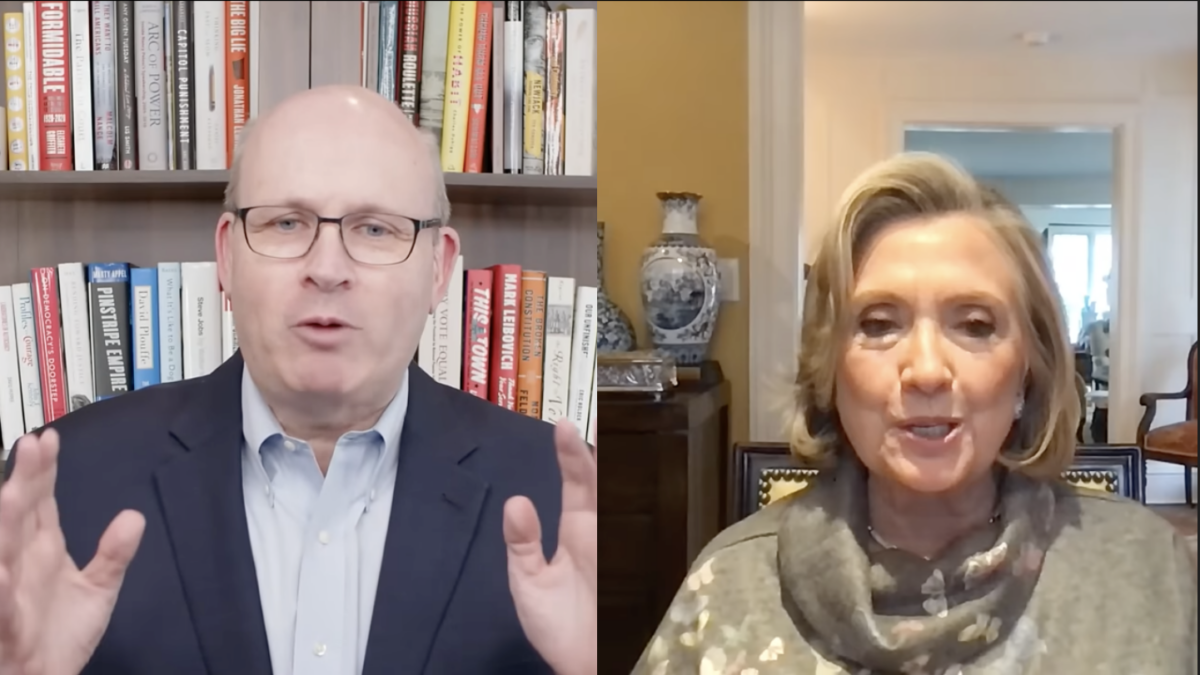
In a recent speech to the United Nations, President Donald Trump mixed his praise of the United States’ capacity to do good with a warning. “We have it in our power,” he said, “should we so choose, to lift millions from poverty, to help our citizens realize their dreams, and to ensure that new generations of children are raised free from violence, hatred, and fear.”
Unfortunately, it’s not at all clear that the free people of the world are still willing to make the choices—let alone the requisite sacrifices—to achieve those universally admired goals.
‘They Always Blame America First’
At the 1984 Republican National Convention, U.S. Ambassador to the United Nations Jeane Kirkpatrick delivered a defense of America’s role in the world known today as the “blame America first” speech. She reeled off a list of the challenges the free world faced and noted that contemporary Democrats typically found causation for those problems in American policy rather than in a readily identifiable bad actor. “But then,” she twisted the knife, “they always blame America first.”
In 1984, this was a scathing indictment. Kirkpatrick’s speech both reinforced the way President Reagan had made the country feel about itself—a renewed belief in our own greatness and mission in the world—and hammered the post-Vietnam moral uncertainty (or worse) of the American Left.
Kirkpatrick continued: “The American people…understand, just as the distinguished French writer, Jean Francois Revel, understands the dangers of endless self-criticism and self-denigration. He wrote, ‘Clearly a civilization that feels guilty for everything it is and does will lack the energy and conviction to defend itself.’”
This compliment—that we knew beating up on ourselves was both factually inaccurate and strategically and culturally dangerous—was true of the American people in 1984. Today, a large and ascendant portion of our citizenry believes the United States and the West are oppressive, colonialist, racist, misogynistic bad actors in the world and that our history is something of which to be ashamed.
Defending Our Way of Life Is Now Shocking
In July, President Trump delivered a speech in Warsaw at least one section of which was surely recognizable to anyone who had lived through the Cold War. “The fundamental question of our time,” Trump said, “is whether the West has the will to survive. Do we have the confidence in our values to defend them at any cost? Do we have enough respect for our citizens to protect our borders? Do we have the desire and the courage to preserve our civilization in the face of those who would subvert and destroy it?”
There is next to nothing in that paragraph that could not have been delivered by post-War Democrat presidents like Harry Truman, John F. Kennedy, or Lyndon Johnson. To those Democrats, the West was a set of ideas and institutions to be celebrated and emulated. But times change. When it heard Trump’s defense of Western civilization, the Left lost its mind.
Leftist writers called this section “shocking,” “white nationalist rhetoric,” “white-nationalist dog-whistling.” One claimed “the West is a racial and religious term.” These reactions are illustrative of the effect of a long, slow decline in Western self-confidence. And while this decline isn’t merely a phenomenon of the Left, the full-throated denunciations of our history and institutions are almost exclusively leftist.
Today, our decades-long failure to confront and mitigate this simmering disaffection has reached critical mass. At root are two major problems: our division on fundamental principles on which there used to be virtually unquestioned agreement, and the unsuitability of and lack of trust in the institutions we have established in the post-War era.
Restoring Our Confidence in Ourselves
Our divisions on major questions render us virtually incapable of addressing the serious threats facing us. And these divisions seem to grow deeper and more paralyzing by the day. Many of these differences—are America and her power good? Are our past failures permanently morally disqualifying? Would the world be better if a non-Western power confronted us?—are nearly irreconcilable.
The institutions the West has built are, rightly, a source of tremendous pride. Unfortunately, they mostly languish in varying states of distrust and disrepair, rendering them unsuited to the task of safeguarding our civilization. Ask yourself which of these formerly venerated institutions are trusted by most Americans: government, the courts, the military, and the engines of American culture such as Hollywood, schools, media, organized religion, the financial system, and the family. Of those, only the military still commands the trust of a significant majority of Americans.
In her 1984 speech, Kirkpatrick noted the success of the Reagan administration in achieving a “reaffirmation of historic American ideals.” President Reagan, she said, “brought to the presidency confidence in the American experience, confidence in the legitimacy and success of American institutions, confidence in the decency of the American people, and confidence in the relevance of our experience to the rest of the world.”
Time to Rebuild Our Homes and Communities
Creating an environment in which Americans and our Western allies can again believe in the goodness and rightness of our motives and actions should be pushing on an open door—especially since it will have the benefit of being true. But how?
We must get serious about electing leaders. That is far less simple than it seems. We have developed a bad habit of rewarding people who tell us what we want to hear. In an era in which institutions constrained our baser passions and culture motivated us to self-suppress destructive elements, electing a certain number of finger-in-the-wind snake oil salesmen was a survivable malady. Today, it’s mortal.
Where possible, we must rebuild and reassert the value of proven institutions around which Western civilization has been built. The family unit and organized religion, both victims of decades of well-choreographed siege, misuse, and neglect, are nonetheless institutions we can’t afford to lose.
There is no quick, easy way out of the mess in which we find ourselves. But without purposeful, immediate action, there is little chance of changing course. And time is running out.









